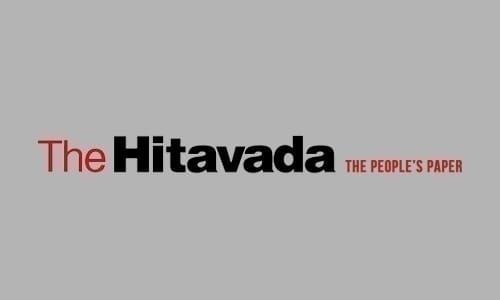Pak Food Crisis
| Date :17-Jan-2023 |

By ARUN KUMAR SHRIVASTAV
AFTER months of struggling to bring the economy back in shape, Pakistan is finally close to the moment when its forex reserves will be completely drained and it would start defaulting on payments to its creditors. Its forex reserves currently stand at $5.5 billion which is enough for meeting imports barely for three weeks. The country with 230 million people has been facing a shortage of essential goods for several months and the situation has become worse in the past few days.
The rice and wheat flour scarcity, in particular, has brought tens of thousands of people queuing up in front of Government trucks distributing subsidised rice and wheat flour bags. More often than not, these queues turn into uncontrolled melee and result in stampedes, claiming human lives. So far, at least 28 people have died in stampedes across several cities in Pakistan trying to snatch a 10 or 20-kg wheat flour bag, which is selling in the open market for around Pakistani Rupees 160 per kg (Rs 1600 for 10-kg or Rs 3100 for 20-kg wheat flour bag).
In the past few months, the Pakistani Government imposed restrictions on the import of many essential items. To save foreign exchange spent on purchasing oil, offices resorted to a 5-day week, and malls were told to operate for a shorter duration. All possible sources of funding have been explored and utilised. It includes a $2.9 billion bailout package from the IMF, $2 billion of assistance from the World Bank, and $3 billion in loans from the UAE. All these loans will be available in a staggered manner and might not resolve all of Pakistan’s economic problems. At best, they would let Pakistan survive from one crisis to another.
How Pakistan reached this state of affairs was discussed and analysed voluminously in this space in the past. The root of the problem is Pakistan’s defence establishment, which not only accounts for a big share of the national budget every year but keeps creating problems within and outside the country to stay relevant. Now, it’s well-entrenched and serves the interests of important global powers. The civilian Government that’s responsible to the people doesn’t have real decision-making power. There are States within the State. That’s how Pakistan is described.
It’s an example of how power can get concentrated in the wrong institutions and hands and how people can pay a price for it. Pakistan’s example makes it important for all those who love democracy and freedom to be ready to fight for it.
Meanwhile, the shortage of essential goods and ensuring anarchy in Pakistan seem to be taking a toll on its officials. In a shocking incident, a Punjab University professor who went to the Pakistan High Commission in New Delhi for a visa to travel to Lahore and deliver a lecture at a university was mistreated and asked indecent questions such as what she does to manage sexual desire given her unmarried marital status. The professor in her complaint to the Indian Ministry of External Affairs also alleged that she was assaulted at the Pakistani High Commission.
This decline in decency and etiquette betrays what we always knew Pakistan stands for. The land of Punjab, Balochistan, and Pakhtunkhwa that produced luminaries such as Parveen Shakir, Nusrat Fateh Ali Khan, Tina Sani, Abida Parveen, and more would have a class of people that would revel in dirty talks with women is beyond imagination. We can’t take the diplomat’s deplorable interaction with an Indian lady as a standard for Pakistan. Every Pakistani is not a terrorist despite many being so. In the same way, the indecent diplomat must be the only one in his tribe in Pakistan’s Foreign Office.
There used to be a time when Pakistani High Commissions would organise Writers’ Meets and Mushairas to let people know on both sides of the border how we are one culture and one people. Now, they are known to be housing top-grade spies and creating a network of undercover agents across India.
As Pakistan is in the throes of an economic crisis, it has an insurmountable obstacle in its way to solving its problems. And, the obstacle is the mindset that doesn’t let it benefit from its neighbour and rising superpower – India. Pakistan may be the only country in the world that has no access to Indian talents and Indian money and resources. It fails to benefit from the Indian worldview of peace and prosperity. Despite being the next-door neighbour, its false pride is taking it to the entire world seeking loans, but when it comes to India, it must wage a war!
Good sense must prevail in Pakistan. And, for that, the military must stand aside. It must modernise itself to accept democracy as the final weapon for every war. It must accept that the welfare of people outweighs most other considerations. It must give Pakistan a chance. (IPA)